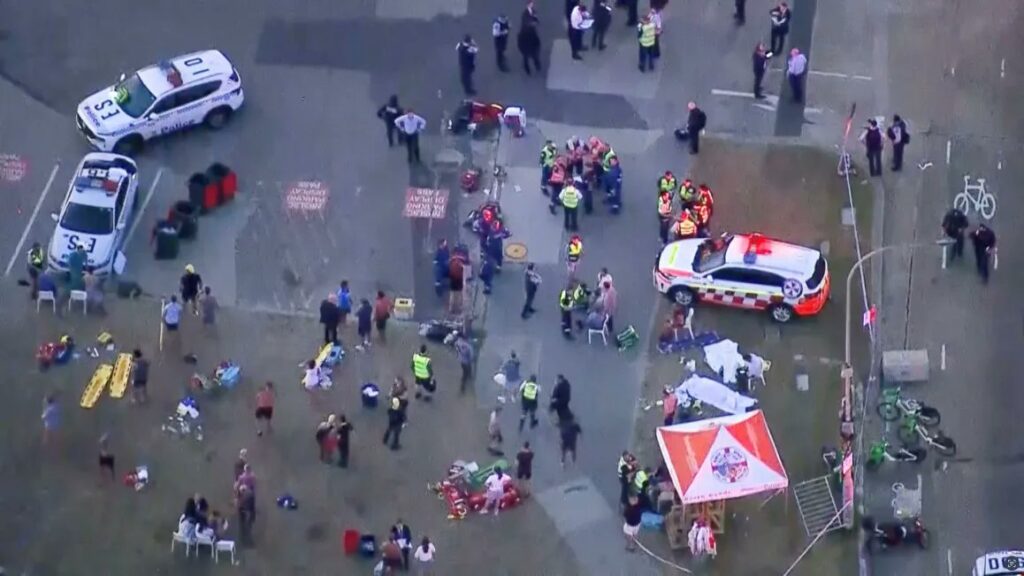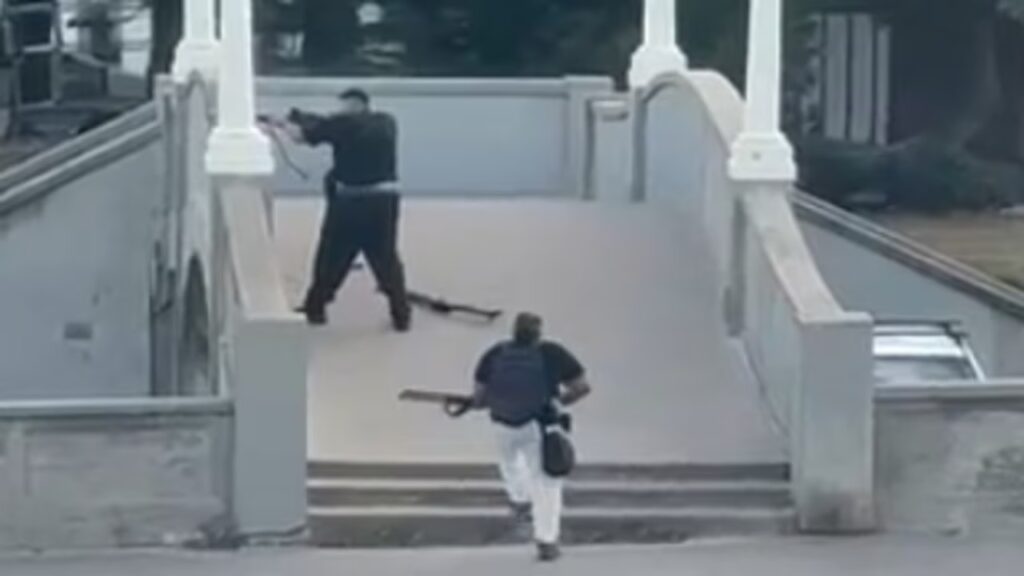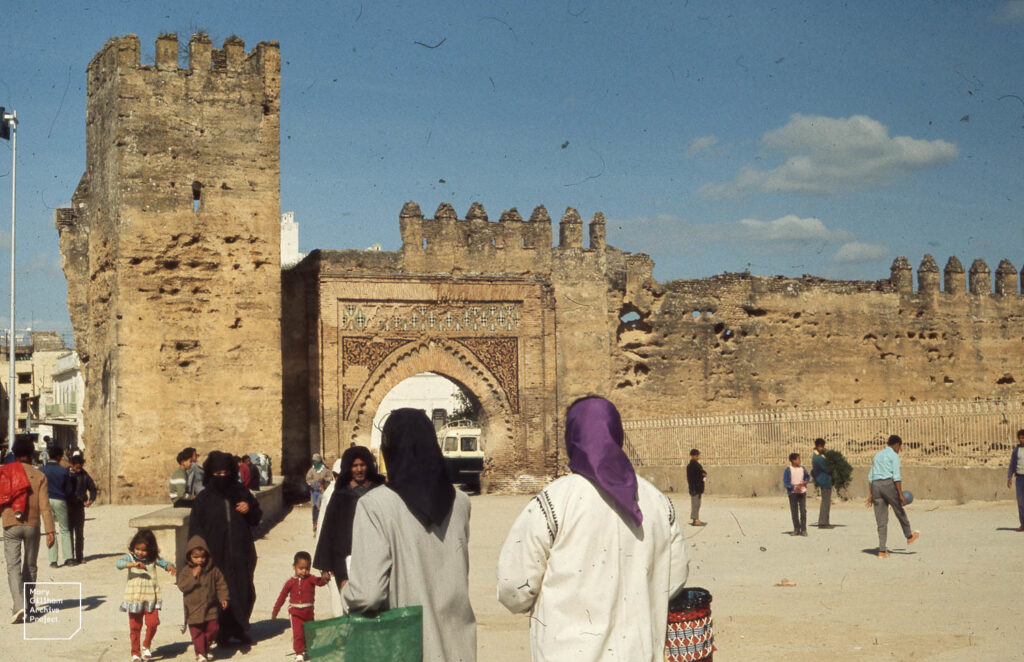UPDATES
The latest sanctions on Iran
October 31, 2007 | AIJAC staff
Update from AIJAC
October 31, 2007
Number 10/07 #09
As readers will be aware, and Updates noted on Friday, the US government instituted some new unilateral sanctions against Iran last week, directed against the elite al-Quds Brigade of the Revolutionary Guards, and against certain financial institutions dealing with them. This Update analyses the likely and intended effects of these sanctions.
First up, Yossi Melman of the Israeli daily Haaretz looks at what they are intended to do. He says they are not likely to make much difference economically by themselves, but are intended to signal US seriousness, to calm fears the US might resort to military force in the near future, and to create a snowball effect, widening the reluctance internationally to do business with Iran, out of fear that it will affect US trade. For this full analysis, CLICK HERE. Haaretz also had a good editorial on the need for the Europeans to step up sanctions if they want to avoid military action, while the Washington Post argues critics who oppose the sanctions as part of a “build-up to war” are actually defeating their own goal.
Next, former government expert on terrorist financing Matthew Levitt, now at the Washington Institute for Near East Policy, gives his assessment of the sanctions and whether they will work. He says that these new measures are part of a new kind of sanctions which are having noticeable effects on Iran and they “absolutely” can work, if they are “part of a comprehensive strategy to create diplomatic leverage.” For this full assessment, CLICK HERE.
Finally, there has been much comment about the significance of the sudden resignation of Iran’s chief nuclear negotiator, Ali Larijani, earlier this month. Author and consultant on Iranian affairs Meir Javedanfar says Larijani’s replacement by Saeed Jalili should be seen as the triumph of the more messianic party associated with President Ahmadinejad, which believes in acting to bring about the wars leading to the coming of the Muslim messiah, the Mahdi, in the near future. He also offers considerable background on Jalili and where he fits into Iranian power circles. For his evaluation , CLICK HERE. Also commenting on this development is Washington Institute Iran expert Mehdi Khalaji, who says Jalili is an ally of Ahmadinejad, but the president is looking more isolated overall; the Economist, which agrees the move is a sign of internal disagreements in Iran; and Iran scholar and author Michael Ledeen, who is more sceptical of such claims.
ANALYSIS: What effect if any will the new U.S. sanctions have on Iran?
By Yossi Melman
Haaretz, 25/10/2007
The significance of the United States decision to tighten its unilateral sanctions on Iran is not economic, but rather symbolic politically and psychologically.
The new sanctions are directed at a number of organizations and individuals in Iran, with those primarily affected being the Revolutionary Guards and its elite unit, the Al-Quds force. This is the first time that the U.S. has imposed sanctions another country’s official military.
The Revolutionary Guards, which was declared a “proliferator of weapons of mass destruction”, has 125,000 troops and is the most important armed force in Iran, as well as the backbone of the regime.
According to Iran’s constitution, the Revolutionary Guards’ role is to protect the revolution and Iran existence as an Islamic republic. In practice, it is an army in every way, with ground, air, and naval forces and is responsible for Iran’s long-distance missiles – including those that are capable of striking Israel – as well as Iran’s secret nuclear program for the production of weapons. This is opposed to the nuclear program under the jurisdiction of Iran’s atomic agency, which provides more open access to international inspection.
In addition to being a military force, the Revolutionary Guards is also a financial empire, with construction companies, financial institutions, and involvement in the oil market. It has representatives abroad, who manage and control front companies that handle purchases for the missile and nuclear programs as well as financial reimbursement for Revolutionary Guards commanders.
The Al-Quds force, which was declared a “terrorist organization,” has some 15,000 troops and is considered the Revolutionary Guards’ elite unit and is charged with holding contacts, mostly secret, with Shiite and pro-Iranian organizations around the world.
The Al-Quds force dispatches envoys and military advisors to organizations like Hezbollah, Hamas, and Islamic Jihad and gives them funding for their activities. The U.S. sanctions list includes: senior Revolutionary Guards commanders, Iran’s Defense Ministry, additional arms of the Iranian administration with ties to terrorism as well as the missile and nuclear development projects, and three central Iranian banks – Bank Melli, Bank Mellat, and Bank Saderat.
Even before the new sanctions were imposed, trade between the U.S. and Iran had been extremely limited since the Islamic revolution in Iran. The purpose of the sanctions is first and foremost to send a clear message both to the Iranian leadership and the international community.
Regarding Iran, the U.S. administration wants to demonstrate determination to do everything in order to prevent Tehran from acquiring nuclear weapons. Regarding the international community, the sanctions have a dual and apparently contradictory purpose – to warn and to calm fears. To calm fears in terms of showing that the U.S. is not trigger-happy, does not want to rush to implement the military option, and is prepared to take a step that would prevent the need for a military attack. At the same time it is also sending a warning to the international community and particularly Europe and Russia: If you don’t want us to attack Iran, you must join our economic sanctions. If they don’t join, Iran will not feel the economic pressure and will continue its deviancy and the U.S. will be forced to use military force.
Will the sanctions have an effect on the Iranian leadership? It is clear that they won’t change the position of Iranian President Mahmoud Ahmadinejad and other hard-liners, who are convinced that the American threats are empty, and that the U.S. has no intention of attacking Iran.
According to those who hold this position, the world will eventually come to terms with a nuclear Iran. But the sanctions are in principle directed against Iran’s supreme leader Ayatollah Ali Khameini and moderate conservatives. They are designed to signal that Iran’s nuclear program could hamper the regime’s ability to survive.
The U.S. hopes to create a “domino effect” – European and Russian companies will join the sanctions – not necessarily because they feel the sanctions are necessary, but rather out of fear of being punished by the U.S. In such a scenario, the supreme leader could reach the conclusion that Ahmadinejad and his followers are more of a burden then an asset, and will suspend the nuclear program.
————————————————————————
Iran Sanctions: Can They Be Effective?
Matthew Levitt
PolicyWatch #1297
Analysis of Near East policy from the scholars and associates of The Washington Institute
October 25, 2007
Today, the State and Treasury Departments announced a new package of sweeping unilateral sanctions targeting multiple entities in Iran, including three banks, the Islamic Revolutionary Guard Corps (IRGC) and its Qods Force, the Ministry of Defense and Armed Forces Logistics, several IRGC-affiliated companies, and eight individuals. Can such sanctions be effective in halting Iran’s nuclear program? If they are used as part of a comprehensive strategy to create diplomatic leverage, absolutely. Absent this leverage, however, policymakers will eventually be left with the unenviable task of deciding between using military force and tolerating a nuclear Iran.
A New Kind of Sanctions
Targeted economic sanctions represent the strongest nonmilitary means of changing Tehran’s behavior. But policymakers do not have to choose between sanctions, diplomacy, and military action. By itself, no one tool can fix the problem. Together, though, financial sanctions and international diplomatic censure, backed by various military options (e.g., a strong naval presence in the Persian Gulf), offer the most effective option for dealing with the threat posed by the Iranian nuclear program.
Unlike the blanket sanctions applied against Iraq under Saddam Hussein, today’s Iranian sanctions are both targeted and graduated. First, they are aimed only at those regime elements specifically engaged in illicit conduct (e.g., banks like Melli, Mellat, Saderat, and Sepah; proliferation front companies; the IRGC and Qods Force). Second, they are applied in phases in order to demonstrate that their purpose is not simply to punish Iran but to encourage a behavior change.
Signs of Success
With continuing signs of domestic discontent in Iran, targeted financial measures can increase the political pressure on the regime. Iran’s former chief nuclear negotiator, Hasan Rowhani, recently disparaged the country’s growing international isolation and stated that economic sanctions were definitely impacting Iran. Despite high oil prices, he noted, “[W]e don’t see a healthy and dynamic economy.”
This should come as no surprise. According to the Economist Intelligence Unit, the nuclear crisis and sanctions are “imposing a heavy opportunity cost on Iran’s economic development, slowing down investment in the oil, gas and petrochemical sectors, as well as in critical infrastructure projects, including electricity.” Several major banks have halted or curtailed dealings with Iran. This trend is likely to accelerate in the wake of the October 11 warning by the Financial Action Task Force (FATF) — an intergovernmental body that works by consensus — that Iran’s lack of a comprehensive regime to prevent money laundering and terrorism financing “represents a significant vulnerability within the international financial system.”
Both Russia and China are members of FATF, giving great significance to the organization’s statements. Moreover, Iran is the only country FATF has publicly identified as a significant vulnerability. The task force is studying trends and techniques involved in weapons of mass destruction (WMD) proliferation, and it has already issued new guidelines on potential financial means of preventing Iran from engaging in such activity. Meanwhile, the U.S. Treasury Department’s Financial Crimes Enforcement Network (FinCEN) has just issued an advisory on the growth of money laundering in Iran.
The FATF and FinCEN advisories should complicate Iranian efforts to find alternative investment opportunities. Recognizing that the regime is actively seeking investment partners to compensate for those it has lost, Deputy Treasury Secretary Robert Kimmitt recently warned China, Russia, and several other countries to respect the sanctions regime and not step into this void.
International consensus for multilateral sanctions is difficult to come by. That is one of the reasons why China and Russia’s approval of UN Security Council Resolutions 1737 and 1747 (and, more recently, the FATF announcement) were so powerful. Combined with the Treasury Department’s parallel efforts to leverage market forces by engaging in direct discussions with private-sector firms, targeted financial measures are already showing signs of success.
The Way Forward
So far, two rounds of targeted sanctions have failed to change the regime’s behavior. To be more effective, and to minimize the likelihood of military conflict, subsequent rounds should follow the lead set by today’s U.S. designations and target additional Iranian banks and companies affiliated with the IRGC, especially those involved in the critical oil and gas sectors. This is not the first time the United States has led by example; in January 2007, it unilaterally designated Bank Sepah, and the international community followed suit two months later, designating the bank under Security Council Resolution 1747. Nor should the U.S. move come as a surprise — speaking to The Washington Institute in May 2007, Deputy Secretary Kimmitt stated that if Washington found an Iranian bank engaged in illicit activity, “We’ll go after them.”
As Iran’s recent experience with the International Atomic Energy Agency (IAEA) has shown, the regime is neither flexible nor forthright when it comes to nuclear negotiations. Washington’s European partners correctly insist that direct talks with Tehran, absent Iranian compliance with the Security Council’s orders, would only buy the regime more time. At the same time, however, the multilateral UN sanctions process has undeniably bogged down. Action should therefore be taken soon to lay the groundwork for substantive sanctions to follow Iran’s report to the International Atomic Energy Agency next month. French officials have already stated that if there are no new UN sanctions by the end of the year, the European Union should “look at more individual kinds of sanctions.”
Although multilateral sanctions are preferable, regional and unilateral sanctions are also very effective. In addition to potential European Union sanction, the German and French governments are advising their firms not to invest in Iran. And unilateral U.S. sanctions, such as those under Executive Orders 13224 and 13382, still have multilateral implications; for example, major international financial institutions typically incorporate U.S. Treasury designation lists into their due-diligence databases. In addition, Iran’s oil minister was forced to acknowledge the difficulty in financing oil projects only months after the multilateral Organization for Cooperation and Development raised the country’s risk rating.
An effective Iran strategy must include carrots as well as sticks, however. The West should clearly communicate the incentives Iran would enjoy in return for full cooperation, even as it continues to sanction the country.
Conclusion
Sanctions do not undermine diplomacy; they create diplomatic leverage. Diplomatic engagement with Iran, whether broad or limited, is severely undermined when Iran is able to pursue its nuclear ambitions, support terrorist groups, and erode security in Iraq and Afghanistan without consequence.
As Washington Post columnist David Ignatius put it, “[T]hese new, targeted financial measures are to traditional sanctions what Super Glue is to Elmer’s Glue-All.” Periodically reassessing and adjusting the package of targeted financial measures will most likely create enough diplomatic leverage to avoid a military confrontation. Short of creating such leverage, negotiation and diplomacy alone will not convince Iran to abandon its nuclear program.
Matthew Levitt is a senior fellow and director of the Stein Program on Terrorism, Intelligence, and Policy at The Washington Institute. Previously, he served as deputy assistant secretary for intelligence and analysis at the Treasury Department.
————————————————————————
Another major victory for messianics
By MEIR JAVEDANFAR
Jerusalem Post, Oct 23, 2007
While the world catches its breath after the sudden resignation of Iran’s top nuclear negotiator Ali Larijani, questions are being asked about the background and beliefs of his successor, Saeed Jalili. The answers, it turns out, are troubling.
Until today, not much has been known about the 41 year-old gray-haired official. He has a Ph.D from Imam Sadegh University in Teheran. As a soldier during the Iraq-Iran war, he apparently survived a chemical attack by Saddam Hussein’s forces.
Sometime later during the war he was shot in his right leg, which according to one report, had to be amputated. According to the same report, since then Jalili has worn an artificial leg. He is a known follower of Khomeini’s “simple living” lifestyle philosophy. During his stint as a Foreign Ministry official, he served at a number of departments where, apparently, he did not make use of amenities made available to employees. For example, he continued to drive an inexpensive KIA Pride to work instead of trading it in for a more luxurious car.
As the deputy head of the American and European section at the Foreign Ministry, Jalili is known to have worked until the early hours of the morning in his office in his efforts to strengthen the co-operation of Iran with Southern hemisphere countries. This was part of the “south-south” strategy, according to which it was believed that Ahmadinejad’s government would be able to look for and find alliances with countries such as Venezuela.
It is also reported that that Ahmadinejad has consulted Jalili on a number of key moves – according to one report, Ahmadinejad’s infamous 18-page letter to President George W. Bush was, in fact, Jalili’s idea.
THE MOST worrying revelation about Jalili’s past appeared recently in the Iran Diplomacy Web site. This Teheran-based news agency, in an article titled “Dr Ali Leaves, Dr Saeed Enters” revealed that for most of his career at the Foreign Ministry, Jalili worked closely with Mojtaba Hashemi Samare, a leading messianic and a close ally of Ayatollah Mesbah Yazdi, the most well-known and high-ranking messianic cleric in Iran.
The article talks about how Jalili cooperated with Hashemi Samare in the Inspectorate department of Ministry. It also mentions that for a short time, Jalili also worked with Ahmadinejad.
Ayatollah Mesbah Yazdi is a former member of the Hojattieh, a messianic splinter group which was disbanded by Ayatollah Khomeini in the early 1980s because of its extremist views. The sect’s goals are to sow chaos – the goal of which is to incite a massive war, presumably necessary to speed up the return of the Shi’ite messiah, known as the Mahdi.
After the forced disintegration of the sect, Mesbah Yazdi moved to the holy city of Qom, where he ran the Imam Khomeini Foundation and the Haghaniye school. From there, he passed on his messianic beliefs to young clerics and revolutionaries whom he hoped one day would reach senior government levels.
One of his early successes was Hashemi Samare, who in the early 1990s managed to find a position inside Iran’s Foreign Ministry. He soon rose through the ranks and became one of the key officials at the ministry. His main job there was to make sure that Iranian ambassadors were staying true to revolutionary beliefs and Islamic ways while serving abroad.
He soon developed a much-feared reputation for recalling diplomats and even ambassadors whom he suspected of becoming Westernized. Some were said to have been locked inside the basement of the Foreign Ministry for days, where, using interrogation techniques including physical violence, he “re-educated” them.
ANOTHER IMPORTANT characteristic of Hashemi Samare was that in his office, instead of a picture of Iran’s supreme leader Ayatollah Khamenei, he hung a portrait of the messianic Mesbah Yazdi. He showed no fear about showing where his true allegiances lay.
During his entire career, Hashemi Samare has looked for, and recruited fellow messianics. No one else would be allowed to work with him. In the 1990s, one of these associates included a little known war veteran and bureaucrat called Mahmoud Ahmadinejad, who for a very short while, worked for him at the Iranian Foreign Ministry. After that Ahmadinejad was posted to the Ardebil province where he became the governor. The two men continuously maintained contact and upon his return to Teheran in 1997, their friendship and cooperation continued.
Today, Hashemi Samare is Ahmadinejad’s deputy and most trusted confidant. He can be seen everywhere with the president, especially during foreign travel, such as his recent trip to New York, and when receiving for senior foreign visitors such as Putin. Some former reformists have even said that while praying, Ahmadinejad stands behind Hashemi Samare; an unmistakable sign of respect and adherence which a person can show to his mentor in Iranian religious circles.
JALILI’S CLOSENESS with Hashemi Samare, and his appointment as the head of Iran’s Supreme National Security Council (SNSC) and as the head of Iran’s nuclear negotiation team shows that the messianics have scored another major victory in placing one of their allies in a senior political position.
Now they can boast that, along with holding positions of power in the Ministry of Intelligence (Gholam Hosssein Ejehi), Ministry of Interior (Mostafa Pour Mohammadi), and, of course, the Presidency (Mahmoud Ahmadinejad) – by having Saeed Jalili as chief nuclear negotiator, they now have a stronger say over how Iran deals with the West over its nuclear program.
Despite this power, the messianics will still find a strong obstacle, in the form of Iran’s supreme leader Ayatollah Khamenei, who, for now, has the last word on Iran’s nuclear program.
“The increasing presence of messianics and their allies in high ranking positions inside the Iranian government will make it much more difficult for Western governments to believe that Iran’s leadership will at any point in the near future be ready to find a negotiated settlement for the current crisis.”
The writer is the co-author of The Nuclear Sphinx of Tehran – Mahmoud Ahmadinejad and the State of Iran. He runs the Middle East Economic and Political Analysis (Meepas).
Tags: Iran





